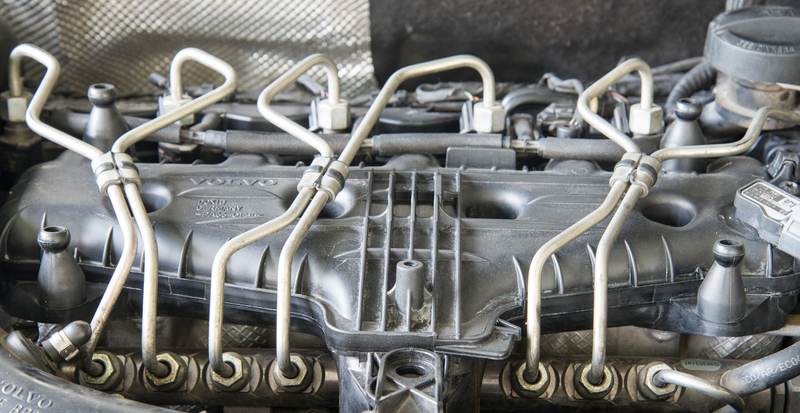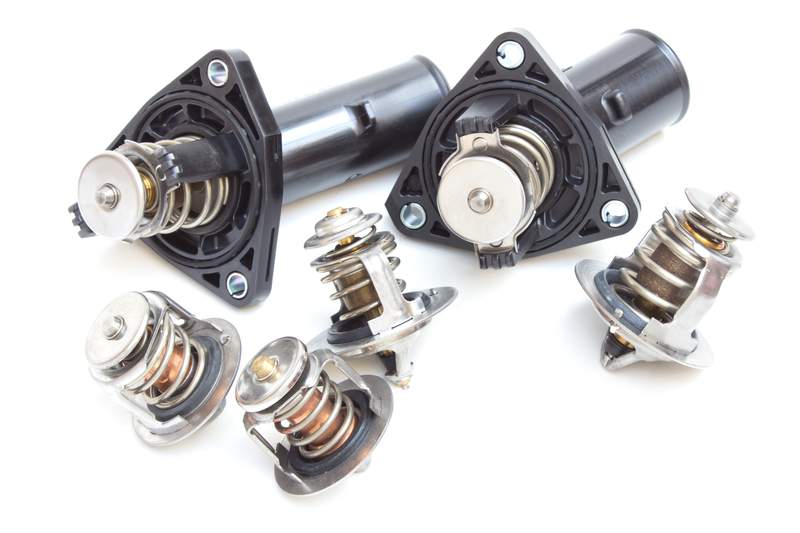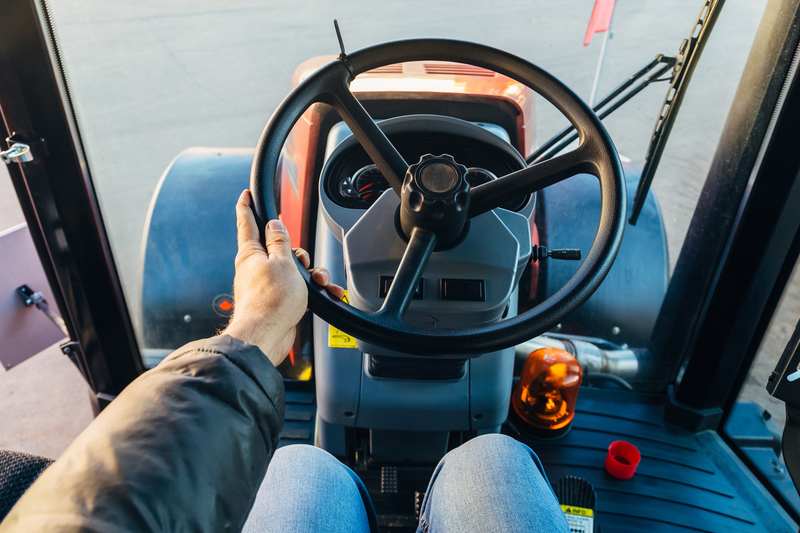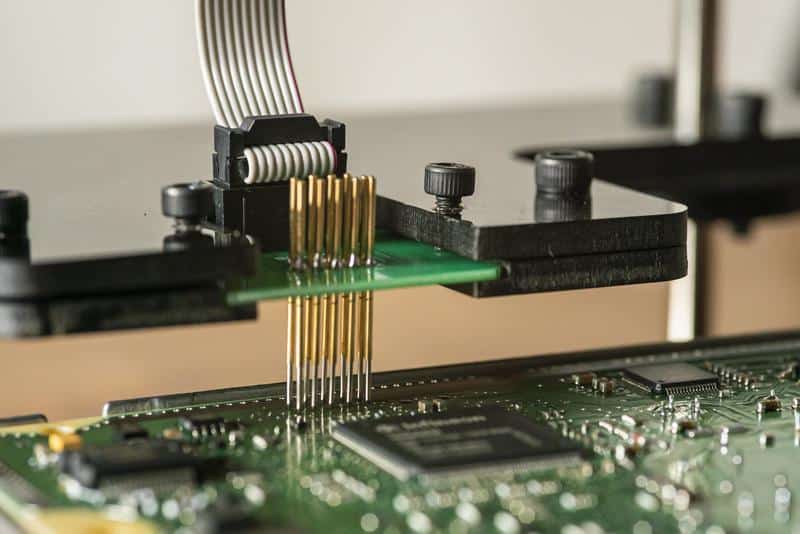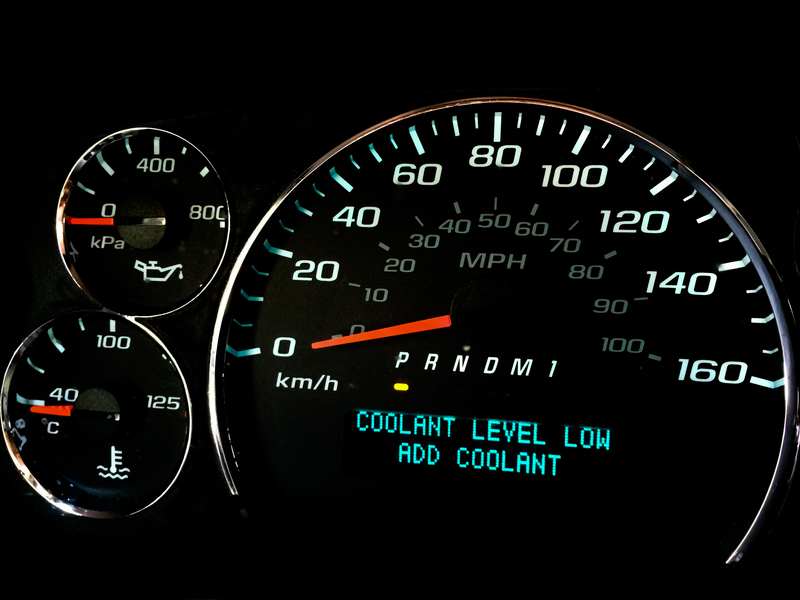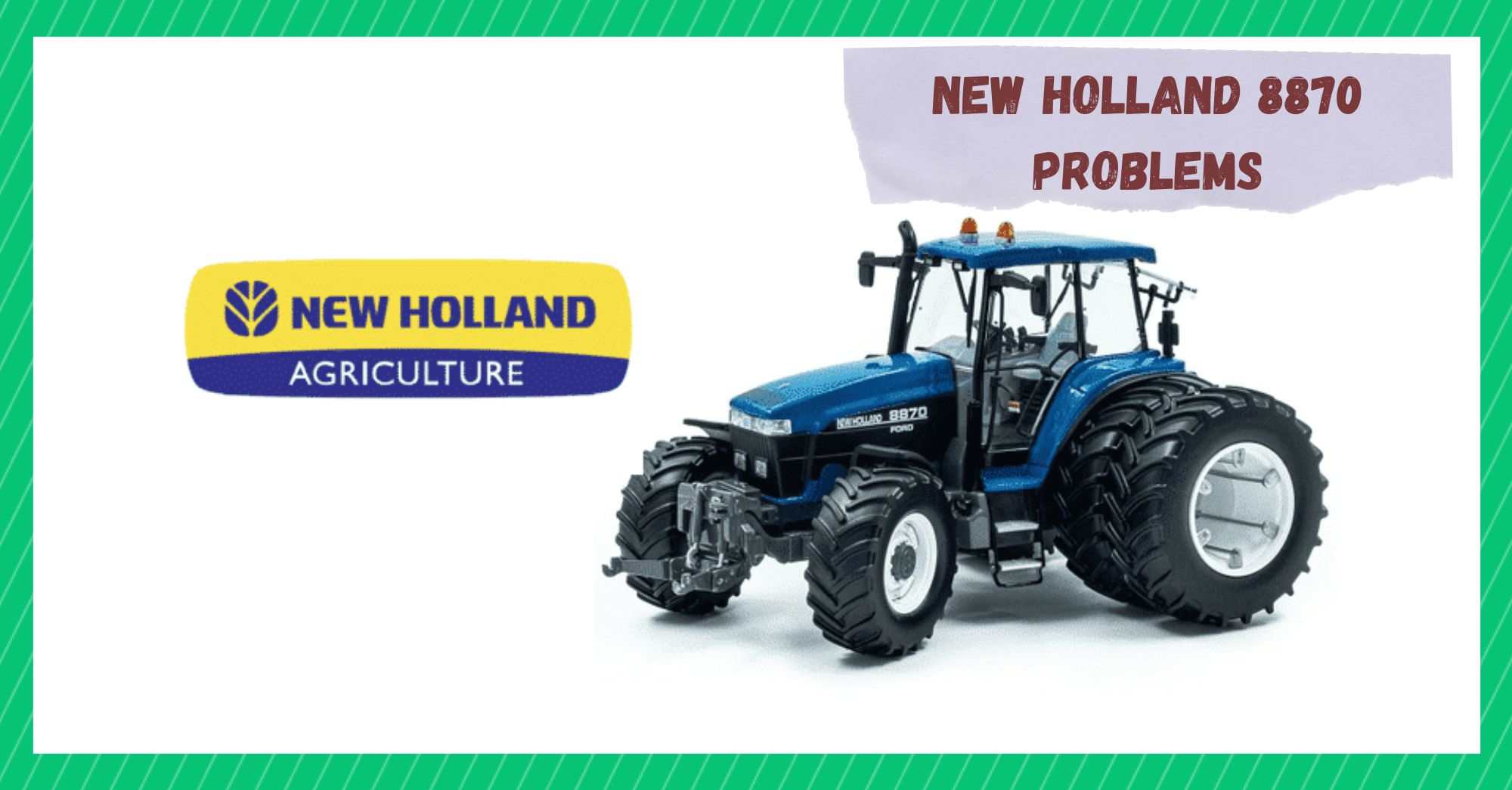
New Holland has achieved remarkable recognition as a tractor manufacturing brand over all these years. Their tractors are reliable enough to get all the heavy work done without compromising on the quality. New Holland 8870 is known to be the most durable of all the other models, thanks to its features.
However, there are certain problems with New Holland 8870 that the users have come across. In this article, we will address the wide range of issues related to this tractor and look at the solutions to these problems. So, let’s start without further adieu.
New Holland 8870 Problems
- Engine Cranks But Doesn’t Start.
An engine cannot run smoothly unless it has fuel, air, spark and compression. It can be difficult to start an engine that has low compression. Check for the seals and gasket. If they are leaking in the engine, they are causing the low compression.
The engine can only run on sufficient pressure, and it can be provided by the functional piston rings and new valve seals.
Sometimes the engine doesn’t start because the fuel is unable to get to the engine. Dirty fuel injectors are the common culprits of this problem.
Corrosion and debris can cause the clogging of the fuel injector nozzles, and thus the clogged injectors fail to add the right amount of fuel to the cylinders. It prevents the tractor from starting.
The proper working and cleaning of the fuel injectors can be ensured by the addition of high-quality gasoline to the tank. There are more chances of debris coming along the fuel that is from unreliable sources and hasn’t been stored properly.
A bad fuel pump also keeps the fuel from reaching the engine. Chain service stations release clean and properly stored fuel most of the time. Therefore, the problem with the fuel injectors is not common.
On the other hand, the chances of having a problematic fuel pump are more. Replace it as soon as you find it faulty.
- Low Hydraulic System Pressure
The hydraulic pump generates the hydraulic pressure, which operates the hydraulic system. Sometimes, the generation of hydraulic pressure is not enough, which results in poor performance.
There are two types of pump strainers, suction strainers and inline strainers. The function of suction strainers is to keep the particle contaminants from entering the reservoir.
On the other hand, inline strainers perform their job within the fluid return lines. Both of these pump strainers can get dirty and play their role in lowering the hydraulic pressure.
The hydraulic system’s connection is with many components, including motors, pumps, valves, cylinders and more. Whenever these components get damaged in any way, it affects the pressure of the system.
However, the correct inspection can get you the identification of the faulty components. You either need to repair those parts or replace them with functional ones.
Most of the hydraulic systems are contaminated with water. As soon as water contaminates the oil, it brings a change in the physical and chemical properties of the fluid.
As mentioned earlier, the most important factor that directs the pressure is the hydraulic pump because it produces the pressure. In case the pump malfunctions, low-pressure conditions take place.
Users need to take recommended actions as per mentioned in the owner’s manual. Most of the time, the only thing required is the alignment of the coupling. In other situations, the pump needs to be replaced.
Some other factors can also play a role in producing low pressure, including relief valve problems and poor functioning of variable displacement mechanism. In the latter problem, you have to inspect the pump compensator and afterwards decide whether it needs repair or replacement.
As far as the improper assembly of valves is concerned, you can fix them by just adjusting them right. If they have deteriorated, they might be the potential cause behind the low-pressure issues. Therefore, replace them as soon as possible.
- Loose Steering Wheel
If you feel the steering wheel lose in your hands, there could be many reasons behind it. Let’s talk about the symptoms first. Whenever you try to take a turn, it will overturn. You can also call it free play. A loose steering wheel goes a little too far than you want it to.
The second symptom involves the knocking sound that is produced after you hit any bump in the field. In case you notice any of these symptoms, you need to get your tractor to the mechanic as soon as possible because the deterioration of the tractor takes place very fast.
The racks joining the steering column and the steering wheel can wear out with time and give a loose end to the steering wheel. Just like that, the linkages between the front wheels and the steering box can also get damaged and cause problems.
Check the front suspension parts as well because they cause the turning of the wheel and give the correct position to the tyres.
In order to fix the problem, get into the tractor while it is stationary and turn the steering wheel . Now, keep someone out there to inspect the turning of wheels. In addition, look for the steering linkage as well. You can have an idea of the wear and tear of the steering box if the level of oil in the box is low.
- Engine Knocking Sound
New Holland 8870 tractor can also face the problem of engine knocking sound .
Many factors contribute to the production of this sound, including carbon buildup on the cylinder walls or in the combustion system, overheated engine, vacuum leaks, connecting rods, back pressure from exhaust, spark plugs, fuel quality, out-of-sync combustion timing or knock sensors failing.
If you ignore the knocking, it can give rise to a bigger problem for you. Tractors work efficiently when the gasoline used in the engine contains the recommended value of octane.
If that value is below the given recommendations, it causes the premature detonation of the fuel-air mixture, and thus you hear the knocking sound. The octane rating is the decisive factor in the assignment of names and numbers to different fuel types.
The fuel is more refined when the octane rating is higher. Such fuels are not easily detonated, nor do they have premature ignition.
The combustion chamber gets its spark from the spark plugs as the latter cause the ignition of the fuel-air mixture.
The potential cause behind the knocking of the engine includes the wrong spacing between the plugs and incorrect plugs. As the heat tolerances of the spark plugs are different, they produce the knocking sound.
As far as the gaps are concerned. A narrow gap is a sign of a weak spark that fails to ignite the mixture. When the gap is too wide, there is no spark whatsoever.
The smooth running of the engine in modern tractors is promoted by the use of sensors . The Engine Control Unit is not only responsible for overseeing the fuel-air mixture but also the fuel injectors and timing.
As soon as there is any sign of knocking, the information about it is transferred from the knock sensor to the ECU, which solves the problem. In case of a faulty knock sensor, the knocking continues, and you hear the knocking sound.
Only a compressed air-fuel mixture is well ignited by the spark. The presence of too much oxygen turns the mixture lean. In simple words, the mixture lacks the fuel that needs to get burnt quickly.
As a result, knocking is produced. If this problem is not addressed, it can give rise to plenty of other problems, including damage to the pistons and cylinder walls.
You need to keep a check know the engine components that are responsible for the regulation of air and fuel. Another thing to ensure is that the functioning of mass airflow sensors must be accurate. The last thing you need to inspect is the pump. It must be in working order.
- Overheating
The temperature gauge of your New Holland 8870 tractor can create an alarming situation for you by showing an above-normal reading.
The possibilities for this overheating are many, the first one being the low coolant level. Whenever you detect the overheating of the engine, take some time to let the engine cool.
Now, check the fluid by removing the radiator cap first. If the coolant level is low, add some more but make sure the new coolant is the same type that is already within the system.
Another factor that can cause the tractor to overheat is an underperforming radiator. Basically, the coolant temperature is reduced only when the airflow is enough.
If the radiator is dirty, it will be unable to produce the required airflow. You can get the radiator clean and fixed by getting in touch with the tractor professionals.
Most of the time, the issue is caused by the temperature gauge itself. It requires you to run a test. Take the thermostat off the tractor and put it in a pot of water on the stove.
Now, take the level to the boiling point and see whether the thermostat climbs the temperature. If it fails to do so, you will have to replace it.

